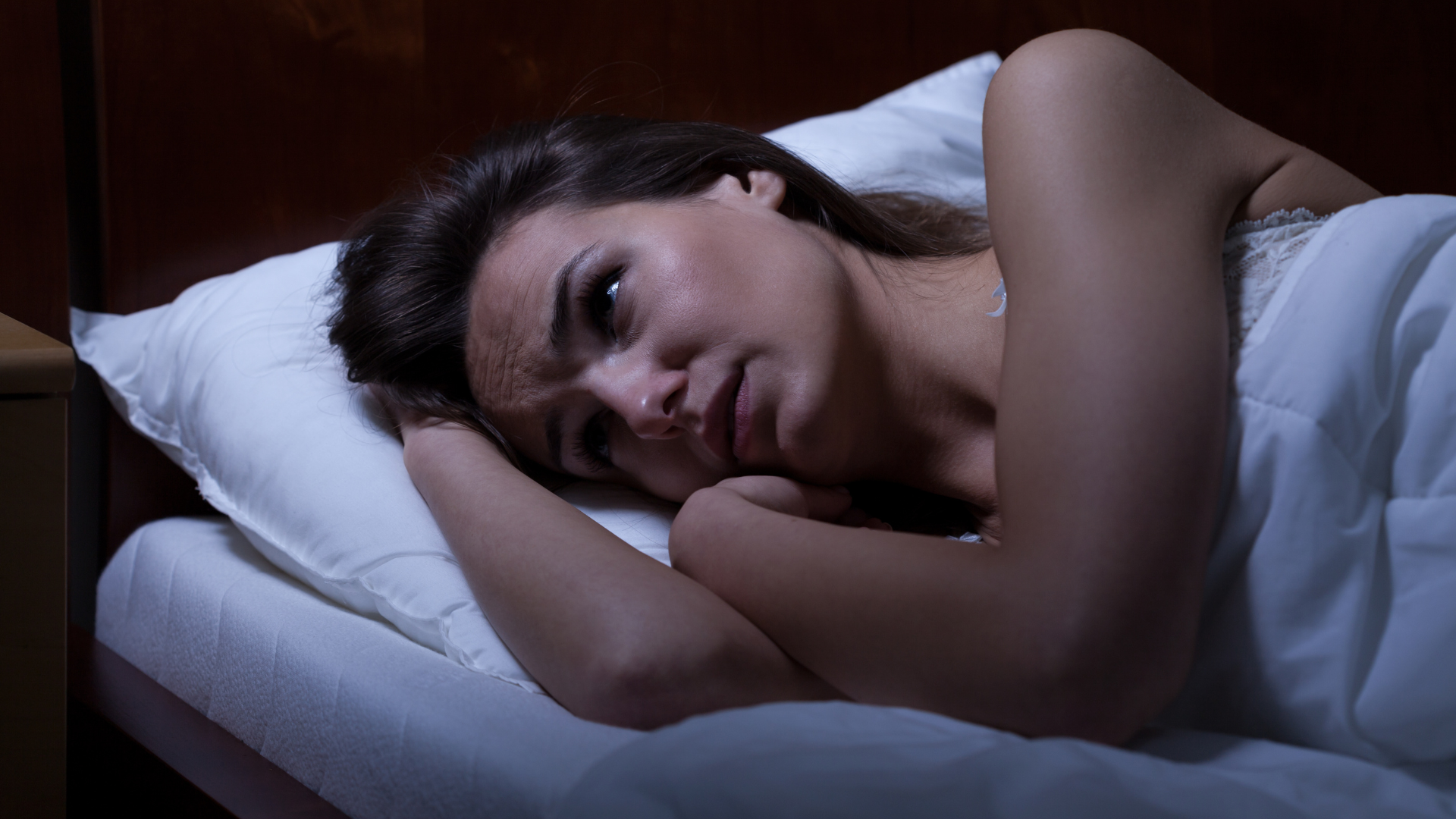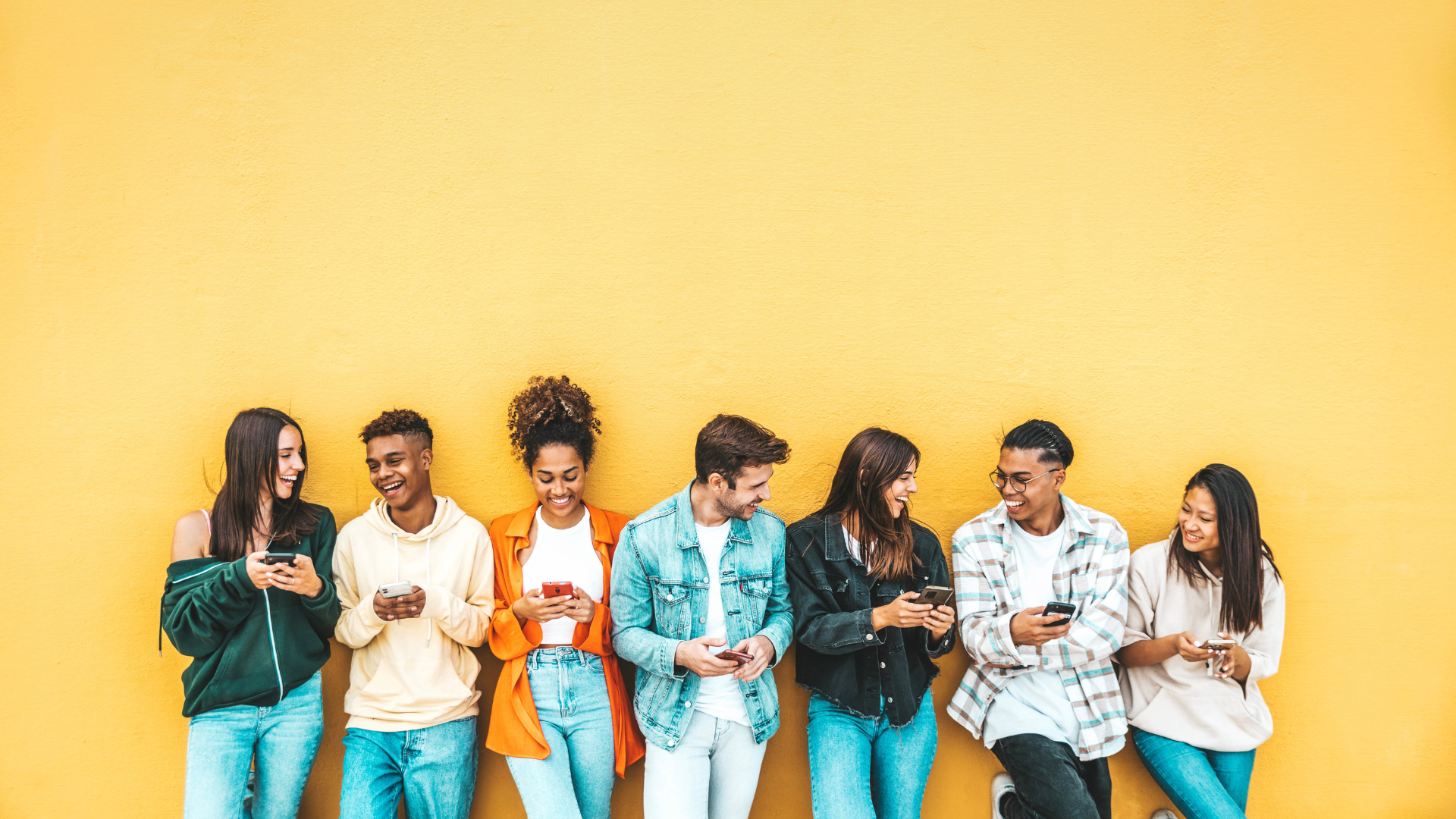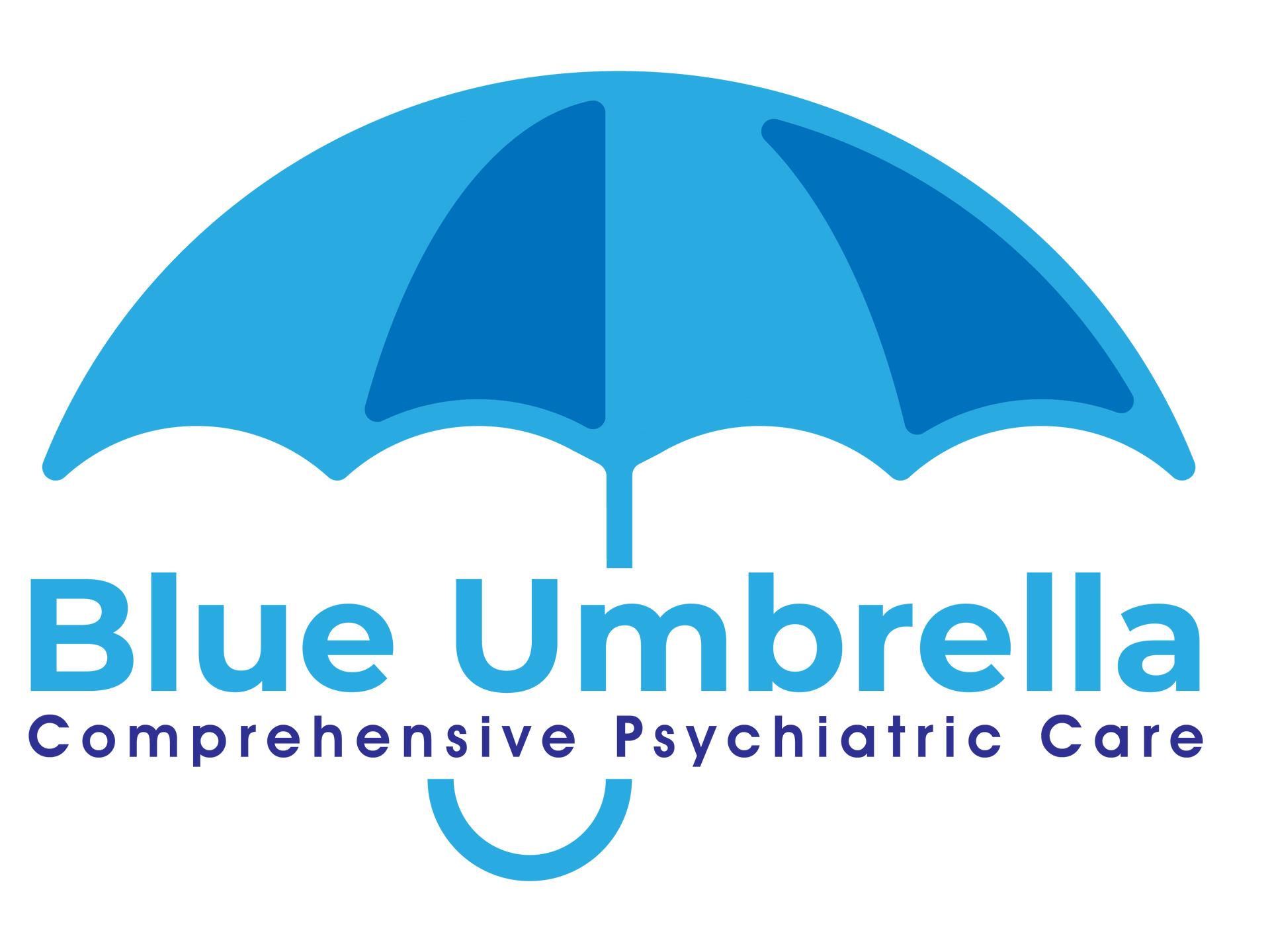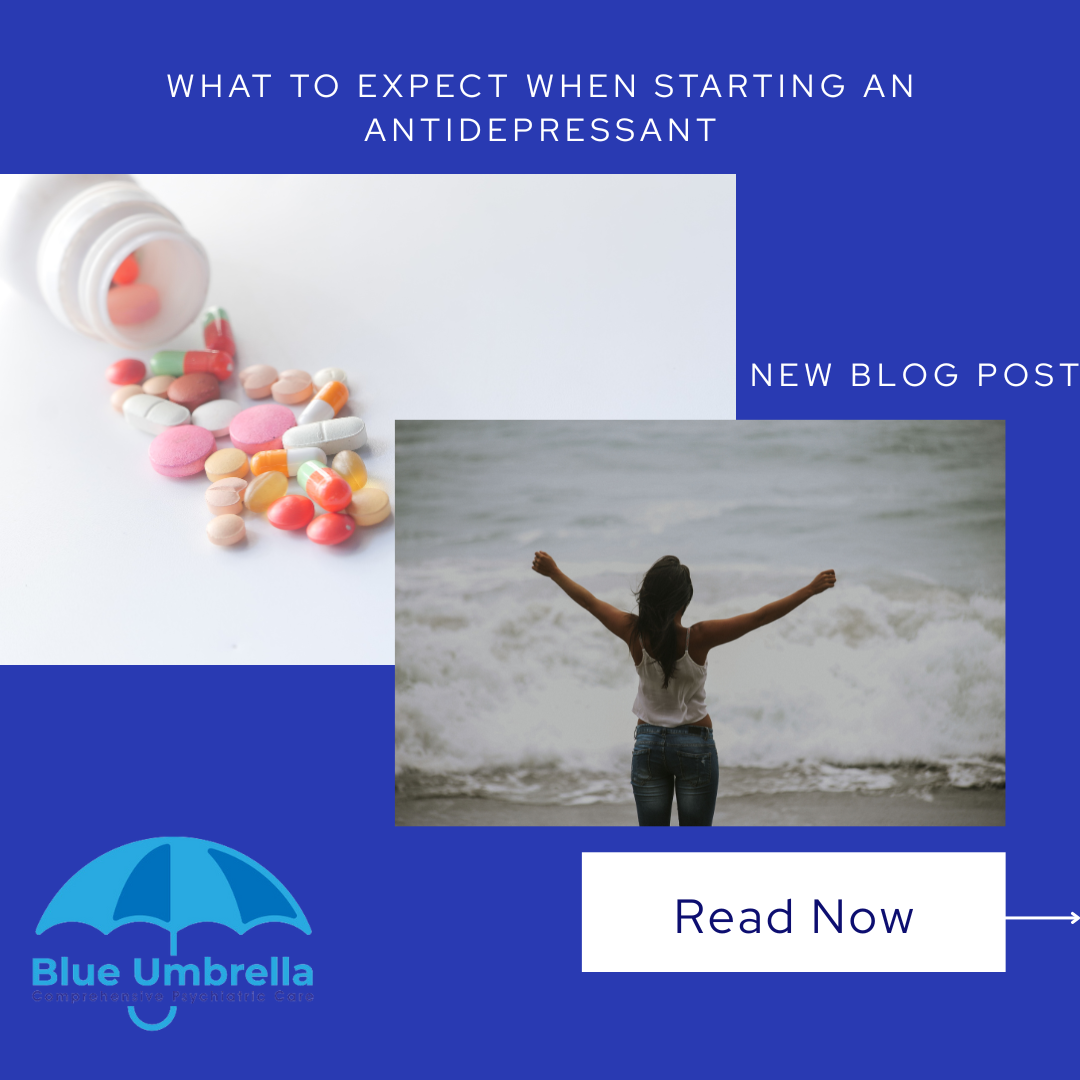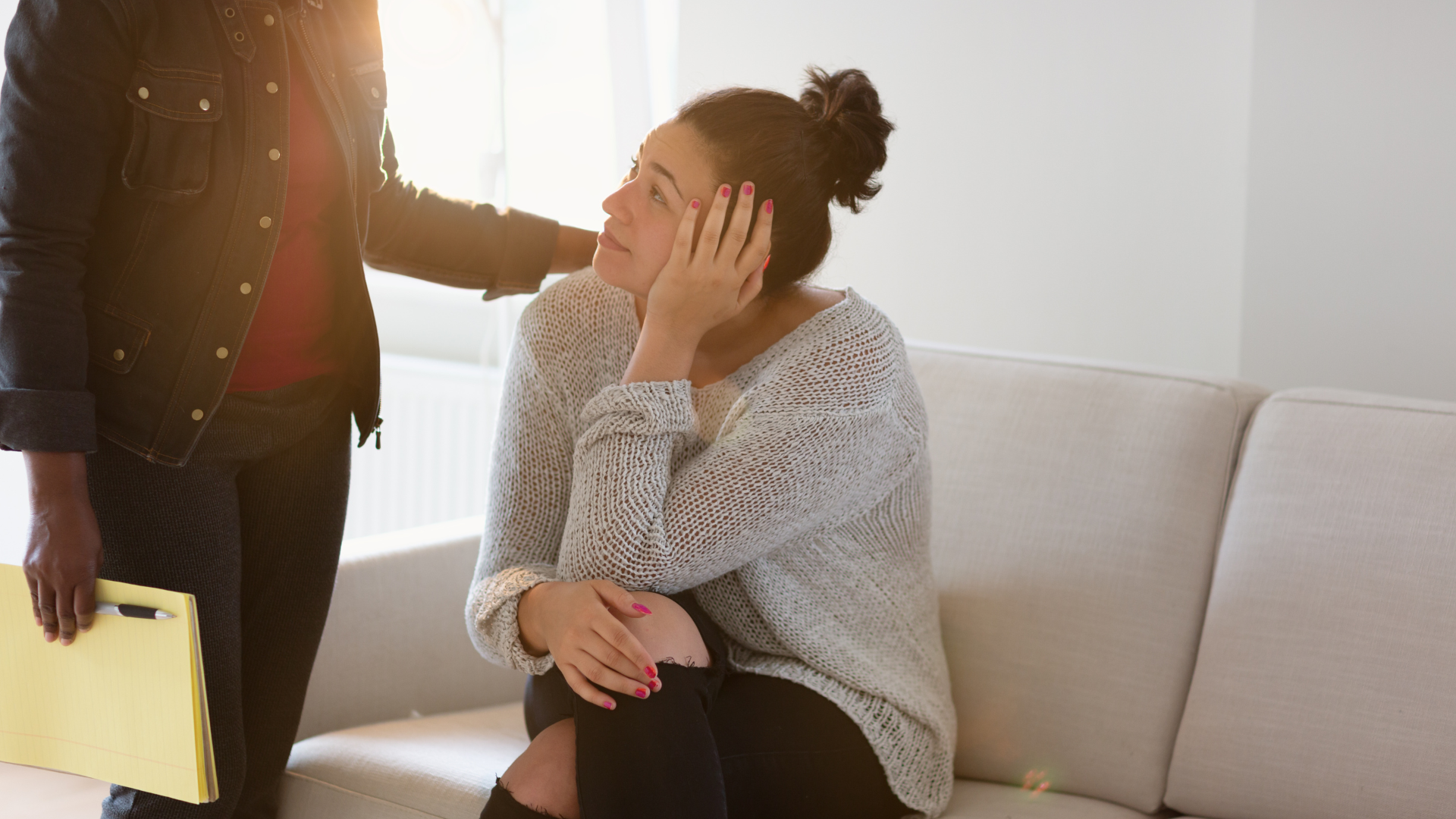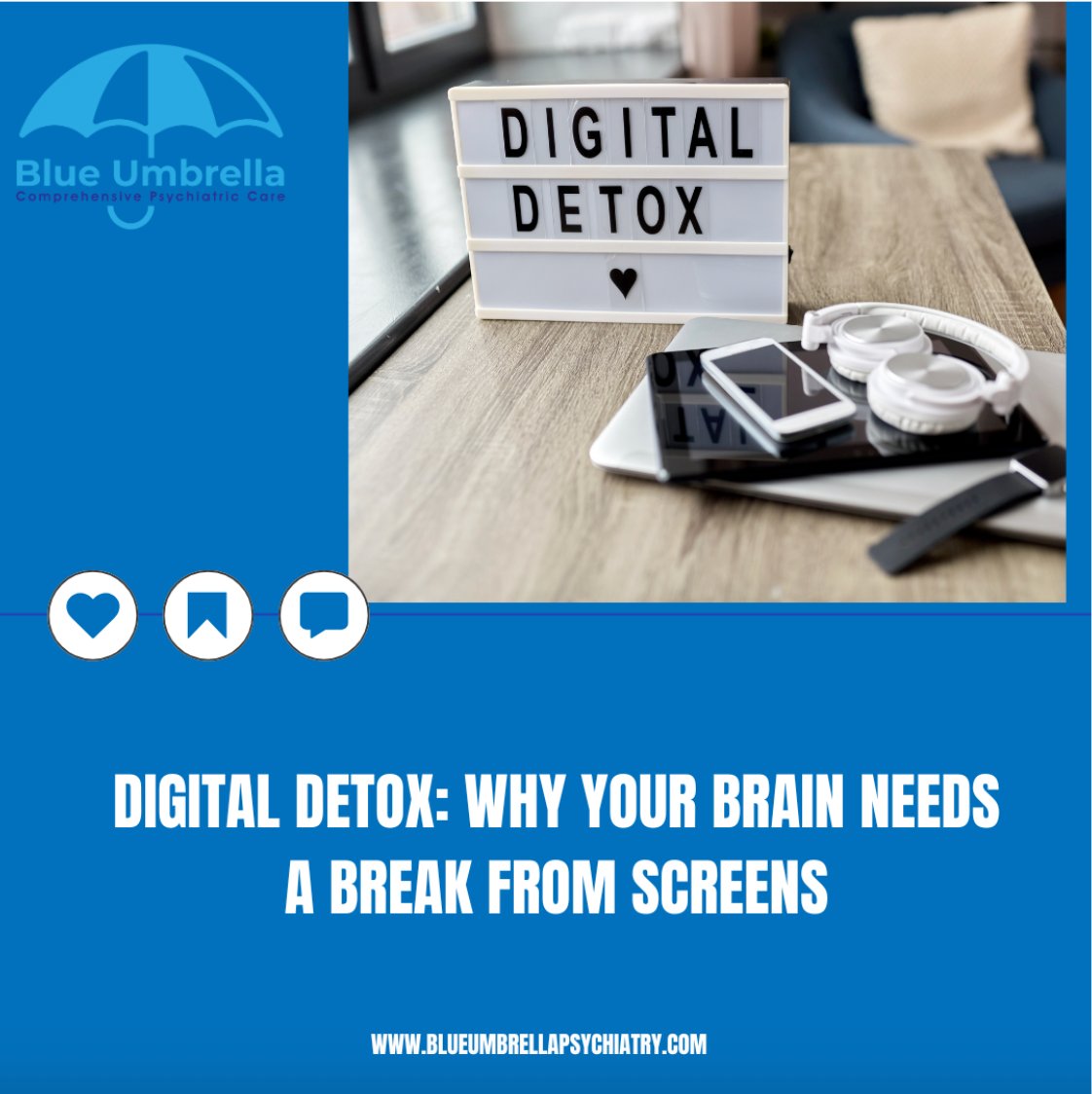
In today’s hyper-connected world, it’s nearly impossible to escape the glow of a screen. From constant notifications and endless scrolling to back-to-back video calls, our digital lives can quietly take a toll on our mental health. At Blue Umbrella Psychiatry, we’re seeing more and more patients struggling with tech-related symptoms—like increased anxiety, difficulty concentrating, disrupted sleep, and emotional burnout.
While technology helps us stay informed and connected, overuse can overload the nervous system. Excess screen time—especially on social media—can increase feelings of comparison, overstimulation, and even loneliness. The more time we spend online, the less time we spend grounded in the present moment or tuned into our emotional needs.
Why Your Brain Needs a Break
Your brain was never designed for constant stimulation. Every time you check your phone or jump between apps, your brain shifts gears—triggering micro-stress responses that add up throughout the day. This can lead to difficulty sleeping, mood swings, mental fatigue, and trouble focusing. For people already managing anxiety or depression, screen overuse can intensify symptoms and make it harder to regulate emotions.
That’s where a digital detox comes in—not as a punishment, but as a powerful act of self-care. At Blue Umbrella Psychiatry, we encourage patients to step back from screens intentionally, even in small ways, to give their minds the rest and reset they need.
Mindful Ways to Start a Digital Detox
A digital detox doesn’t have to be all-or-nothing. Start small and build sustainable habits that work for your lifestyle. Some strategies we recommend include:
- Tech-Free Mornings or Evenings: Try starting or ending your day without checking your phone for the first 30 minutes. Instead, use that time for stretching, journaling, or sitting quietly with your coffee.
- Create Screen-Free Zones: Make your bedroom or dining area a no-phone zone. This helps reinforce rest, connection, and presence in your most meaningful spaces.
- Limit Notifications: Turn off non-essential alerts so you're not constantly pulled into your device. Choose when
you want to engage.
- Swap Scrolling for Soothing: Instead of reaching for your phone out of habit, try a mindful alternative—like a breathing exercise, nature walk, or reading a physical book.
- Track Your Use: Awareness is key. Use built-in screen time tools or apps to understand your habits and gently challenge yourself to reduce them.
At Blue Umbrella Psychiatry, our therapists work with patients to identify the emotional patterns behind screen overuse. Whether it's a way to avoid difficult feelings, fill empty space, or self-soothe stress, therapy can help you build more mindful coping strategies that truly restore you.
Let Blue Umbrella Psychiatry Help You Reconnect with What Matters
If you’ve been feeling overwhelmed, scattered, or emotionally drained, a digital detox might be the reset your mind and body need. Our compassionate team can help you build a personalized plan that supports emotional balance—without relying on constant digital input. Through mindfulness tools, therapy sessions, and practical behavior changes, we’ll help you feel more present, calm, and in control.
Call us at 954-341-5215 to schedule your consultation. At Blue Umbrella Psychiatry, we’re here to help you create habits that support—not sabotage—your mental health. Let this summer be your season of reconnection.
